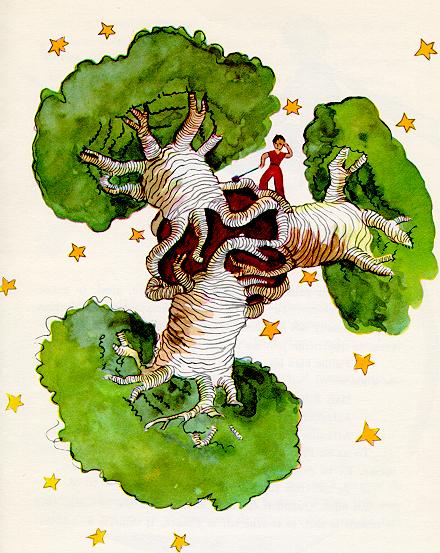Marx:
Today’s wage-labourer is tomorrow’s independent peasant or artisan, working for himself. He vanishes from the labour market - but not into the workhouse.
Sakai:
A study of roughly 10,000 settlers who left Bristol from 1654-85 shows that less than 15% were proletarian
many English farmers and artisans couldn’t face the prospect of being forced down into the position of wage-labor.
Is it the difference of time periods? I just noticed now that the time period Sakai is talking would be a pretty early period of colonization, wouldn’t it? So it may be that by Marx’s time of writing (late 1860s-early 70s?) it was proletarians headed to America and had been in recent historical memory?
Sakai’s quote reads like he is saying that <15% of 10k settlers who were leaving Europe were proleterian in Europe before they left for America. I think you understood that but wanted to reiterate just in case.
Marx’s quote doesn’t imply that most settlers were proletarian before they left their home countries. He is just saying that the overadundance of capital in the America due to the forced disposession of indigenous land and the short supply of labour in relation created a phenomenon where where former-wage labourers could become independent peasants and artisans. So even those settlers who had proletarian background could become petite bourgeois. This is still true today in the case of the Zionist freaks who move to illegal Palestianian settlements.

thank you, this checks out
This, if you need to see a replay of history… Look at the Zionist entity complete with the atrocities, genocide, etc
Some light class analysis of settlement eras.
Pre and Early US Period (1620s - 1780): Averaging a 1000-10,000 settlers per year, mostly “Adventurers” (literally venture capitalists who sponsored colonies, merchant and/or soldier background), share-owners - people like the “Pilgrims” who signed onto a company of Adventurers’ plan to work the land and share profits with the company, the indentured servants of the above classes, contracted workers (mostly sailors or those hired onto the company for x many years), and a small amount of slaves (slavery picked up heavily in later years). Servants were outnumbered by the above classes, they did a lot of the heavy labor in the early years, but generally were wealthier and more privileged the more the colonies developed. Predominantly servants were obligated to shares of their master’s stake in the colony after completion of their contract, they are somewhat of an indirect “partner” in the colony itself. The colony would trade for goods with natives and traveling fishing ships and send the proceeds back to the companies/pay dividends to investors. The Cromwell Revolution and Colonization of Ireland would bring military veterans, later sons of the upper peasant and lower noble classes, to the colonies and they would be purchasing land from the share-owners. “Modern real-estate” is actually Anglo-America’s first big industry. Most of these people were English, Scot, Dutch, or perhaps protestant Irish upper class, religion was a big factor at this time. In the 1700s a lot of the settlers were actually already settlers in the Caribbean, like Alexander Hamilton. These people were leaving the Caribbean colonies because there were many slave revolts and the European population down there was outnumbered by African and native slaves 5-10x.
“Antebellum” US (1780-1864): 10k-300k yearly ramping up over time. Just under half were from Ireland, mostly peasants (and some Scot/Anglo settlers) whose crops were blighted. The rest were largely from Germany, northern Europe, and Britain, again likely Bourgeois or wealthier peasants as many Germans had the wealth to immediately join the “frontiers” while most Irish were stuck in the port cities. This would be the time Marx was contemporary to. Workers in England were privileged from the wealth pouring in from the slave colonies, India, and Ireland, but Marx was still able to get many of them to fight their own direct interests by refusing to help the Confederacy (the slave colonies).
Pre Civil Rights US (1865-1965): Peak settlement occurred in the 1880s-1920s. It was at first uniformly from north and western Europe, during the peak they were mostly from southern and eastern Europe. Settlers hailing from the north and west were still of usually upper-class extraction, a continuation of the trend above, where many are immediately settling the “frontier” in so-called “Indian Territories”. Many of the southern and eastern settlers would have been expropriated peasants, or peasants who suffered from crop failure (a condition the USSR would finally solve). At this time though, many of these “immigrants” were not actually intending to settle, they were teen boys and young men who would work in the US for some years and send money back and usually later returned (we are talking more than half returned). So much of the workforce in the port cities was once again “indenture”-ish workers, this time as migrants, which would expand after 1965 when “immigration” came heavily from Asia and Latin America. Some plant a foothold with property or citizenship. There are still millions of these workers in the US from the high-earning H1-Bs to the low-earning produce workers. Even most US states are stocked by “internal” migrant workers from other states who are often paid to relocate.
Marx’s quote is a general comment on wage labourers. He doesn’t mention the US in that sentence. Sakai is referring specifically to settlers leaving Britain to colonise the US.
Id say the reason in difference is just perspective, Sakai is writing from the perspective of someone whos family was in a Japanese interminent camp on American soil and lived thru the jim crow era as an ethnic minority, hes going to have a more cynical (and modern) perspective on it.
A study of roughly 10,000 settlers who left Bristol from 1654-85 shows that less than 15% were proletarian
I’m pretty skeptical of this. First, what does proletarian even mean when capitalism is still in the takeoff stage? Second, who is boarding a packed, disease-ridden sailing ship for a perilous months-long journey besides those with few other options?
Second, who is boarding a packed, disease-ridden sailing ship for a perilous months-long journey besides those with few other options?
The diggers and the levellers; both key figures in america, look em up. Religious fundamentalists who wanted freedom for white men and genocide for everyone else. They split from there lords over the contradiction of ‘you shall not kill’ in christians conciding with the class conciousness emerging in the serf class as they slowly began to read.
That was one of the first questions that they asked ‘if it says here you cant kill but you killed to gain the land we serfs work then you are not holy’ basically.
First, what does proletarian even mean when capitalism is still in the takeoff stage?
You’re right that workers in the domestic system at that time, the pre-cursor to the proletariat, would not have the means to settle the colonies unless a corporate sponsor really needed their specialties.
Second, who is boarding a packed, disease-ridden sailing ship for a perilous months-long journey besides those with few other options?
All ships were disease ridden then, they are still disease ridden today, look at cruise ship statistics. The deadliest route to California from the US was a boat to Panama, taking the train across the isthmus, then a boat to San Francisco, an expensive itinerary - because it was the fastest. Highest rates of death occurred in this route due to disease. It was the poor and cheap who took overland wagons (which still cost a lot).
It appears that Sakai’s answer is that land hunger was so severe that, yes, petty bourgeois individuals would be willing to endure it to have something like the standard of living they had been used to.
the sons and daughters of the middle class, with experience at agriculture and craft skills, were the ones who thought they had a practical chance in Amerika… What lured Europeans to leave their homes and cross the Atlantic was the chance to share in conquering Indian land.
Here is a quote he takes from ““Social Origins of Some Early Americans”. In SMITH, ed., 17th Century America. N.Y., 1972.”
Land hunger was rife among all classes. Wealthy clothiers, drapers, and merchants who had done well and wished to set themselves up in land were avidly watching the market, ready to pay almost any price for what was offered. Even prosperous yeomen often could not get the land they desired for their younger sons…It is commonplace to say that land was the greatest inducement the New World had to offer; but it is difficult to overestimate its psychological importance to people in whose minds land had always been identified with security, success and the good things of life.






